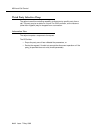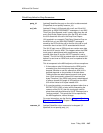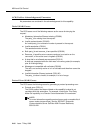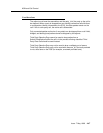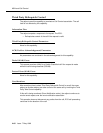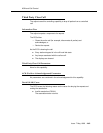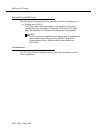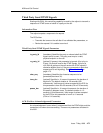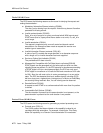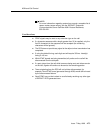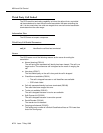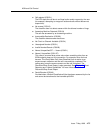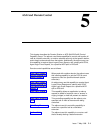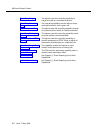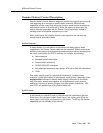
ASAI and Call Control
4-72 Issue 7 May 1998
Denial (NAK) Cause
The ECS issues the following reasons as the cause for denying the request and
ending the association:
■ Mandatory Information Element missing (CS0/96)
The char_seq is missing from the request. A denial may be sent if another
parameter is missing as well.
■ Invalid number/domain (CS0/28)
Party_id is out of range or is a party on whose behalf ASAI cannot send
DTMF tones (that is, a party other than a station or a trunk). Or, call_id is
out of range.
■ Invalid association (CS0/81)
The request is supported only over call control and domain control
associations. An attempt has been made to request this service over
another type of association.
■ Invalid Information Element contents (CS0/100)
A value of an IE is outside the range specified, or a character sequence
with a length of 0 or invalid characters has been supplied.
■ Service or Option Not Available (CS3/63)
The provided call ID does not exist.
■ Message Not Compatible with Call State (due to call state)(CS0/98)
DTMF signals can be generated only for active calls on which no other
signaling tones are present. Or, the ECS capacity for simultaneous sending
of DTMF digits is full (on a simultaneous basis, the ECS can only send
DTMF digits on a maximum of 16 calls for R6si and a maximum of 32 calls
for R6r). Also, the call must not be in vector processing or in a non-active
state. The ECS has detected that local, audible signals, including (ECS)
dial tone, busy tone, ringback tone, intercept tone, or Music-on-Hold/Delay
are currently being received. Also, if a call is being service observed.
■ Reorder/Denial (CS3/42)
A request to send DTMF on a conferenced call with more than five parties
is denied.
■ Incompatible Call Options (CS3/80)
The tone duration is present but the pause duration is not present, or the
pause duration is present but the tone duration is not present.
Protocol Error (NAK) Cause
The ECS issues the following cause for generating a protocol processing error:
■ Protocol error (CS0/111)
The Q.932 protocol has been violated or the capability invoked is not
consistent with this association. For example, invoking the Third Party
Make Call capability on a Domain Control association is inconsistent.



